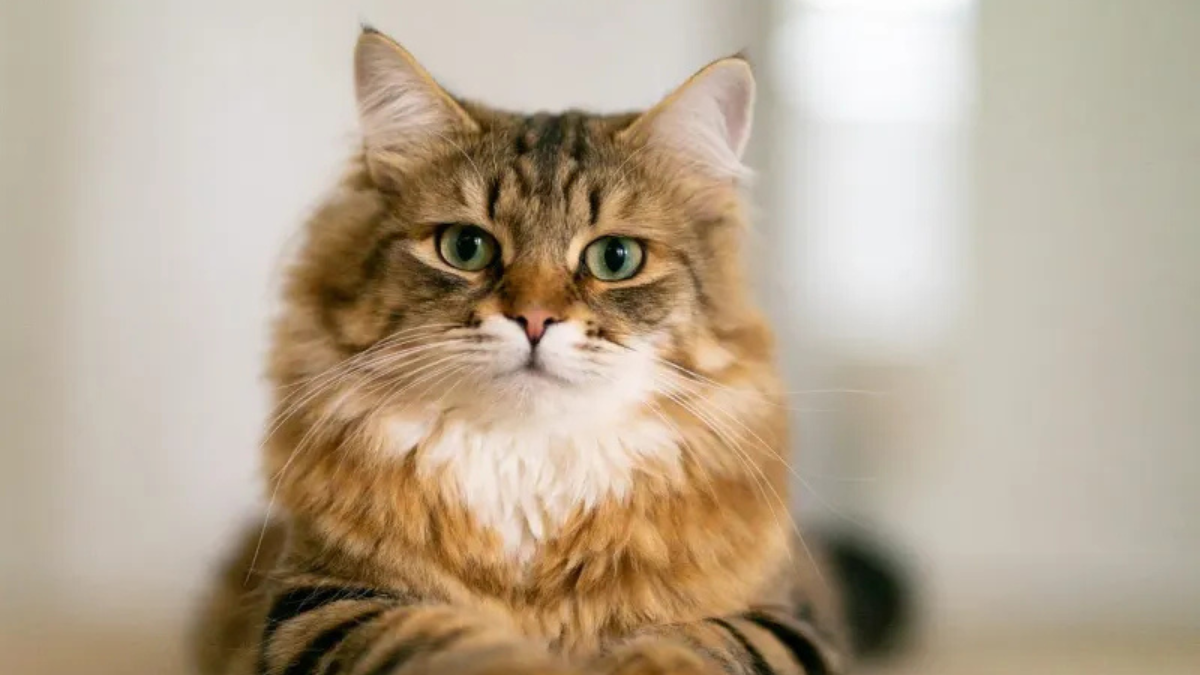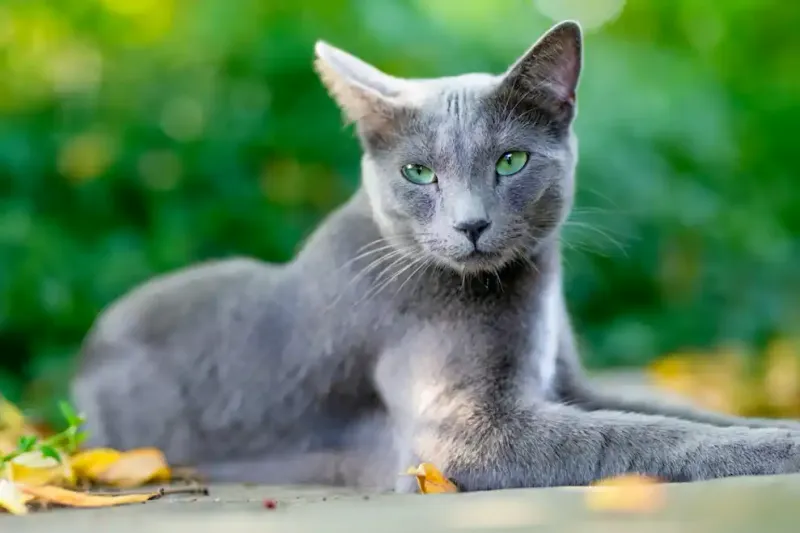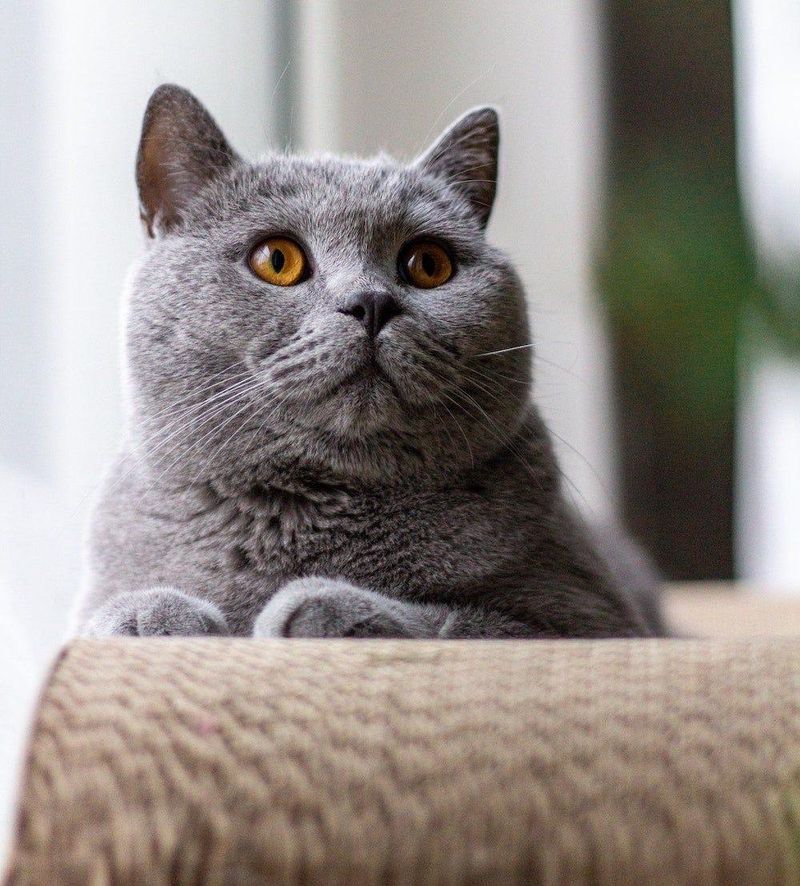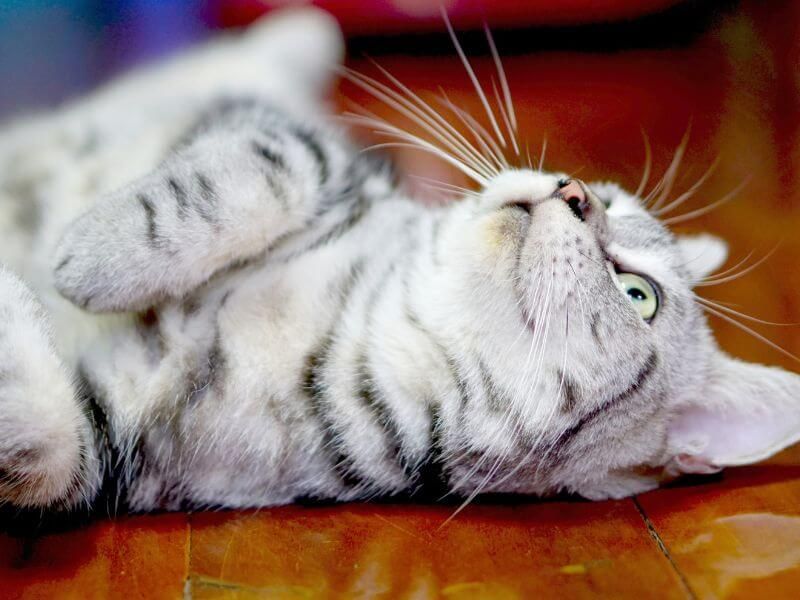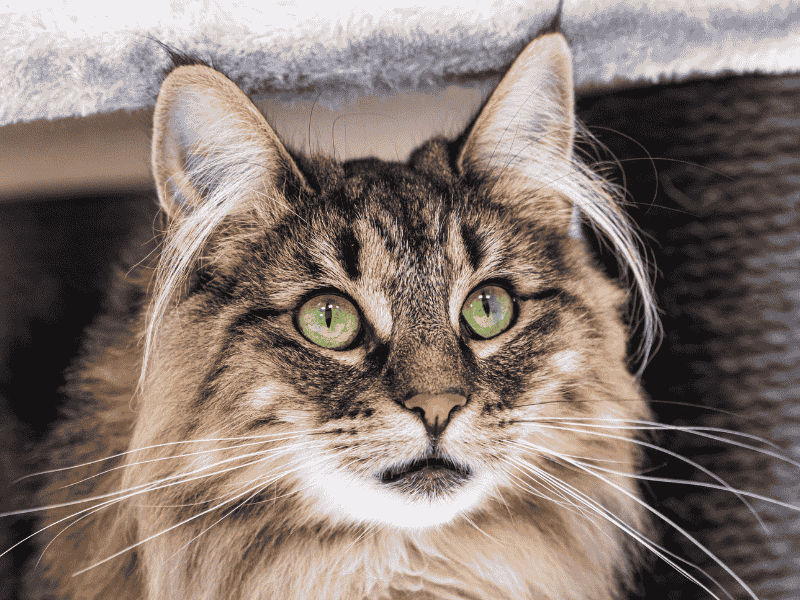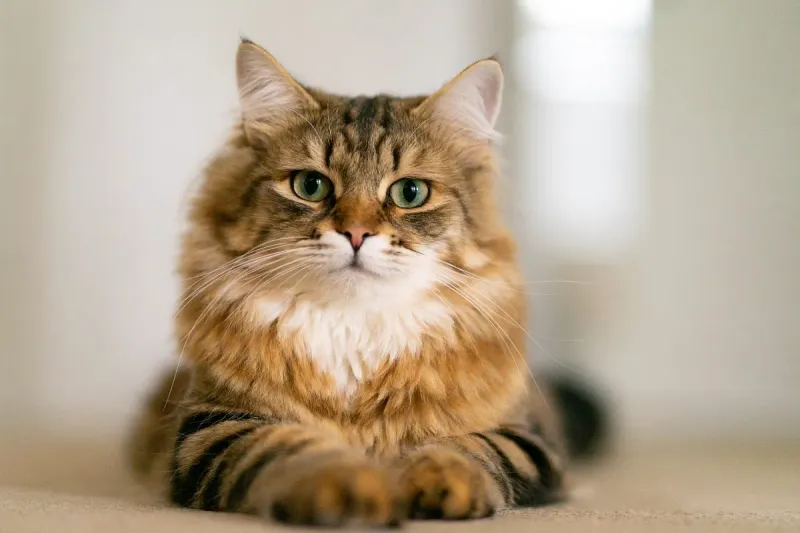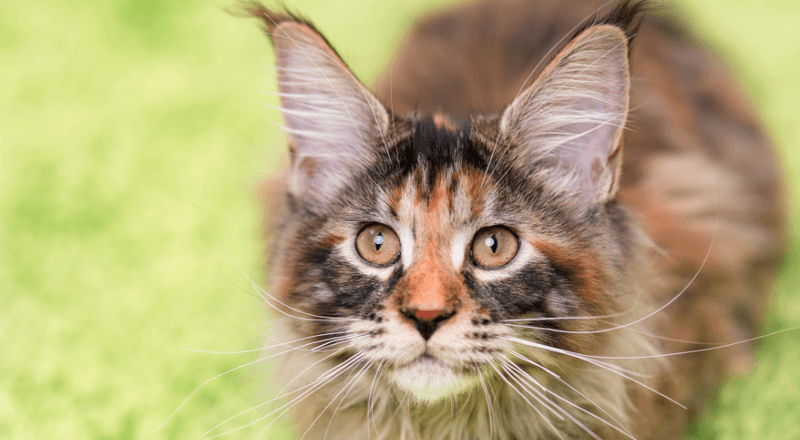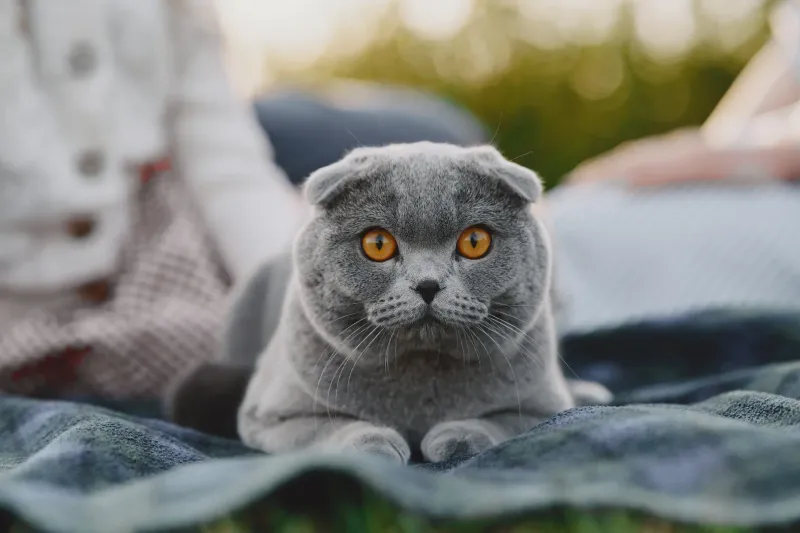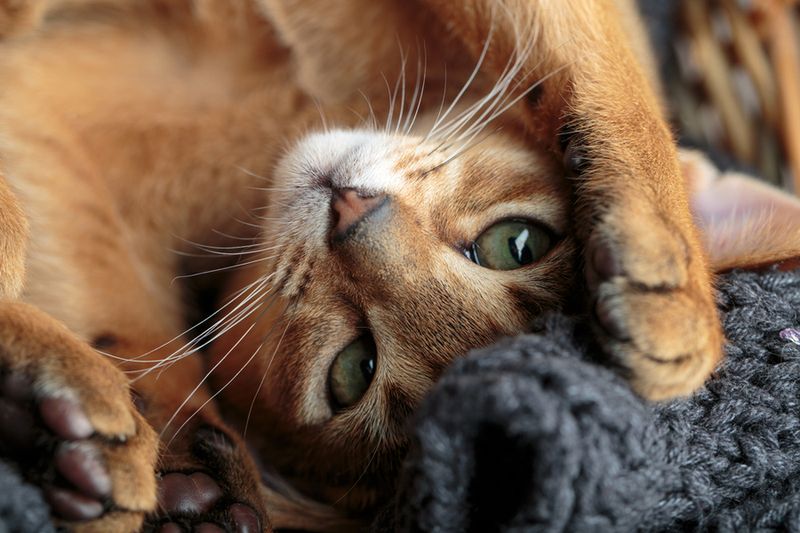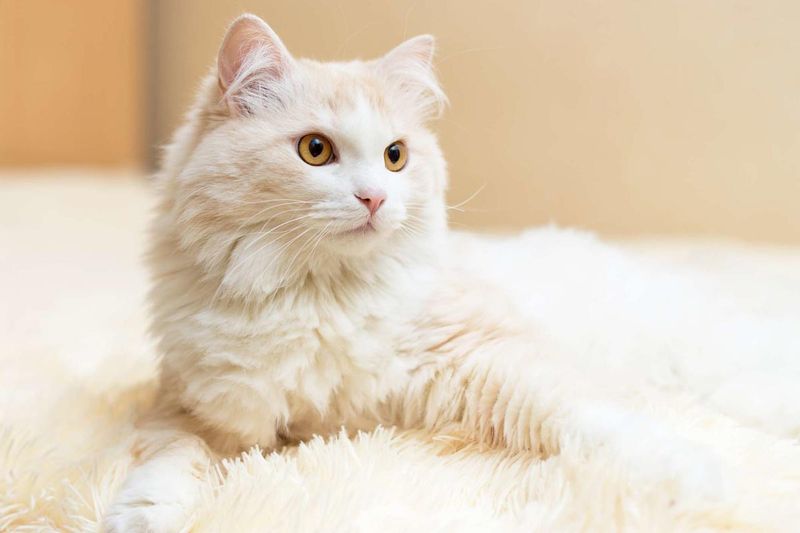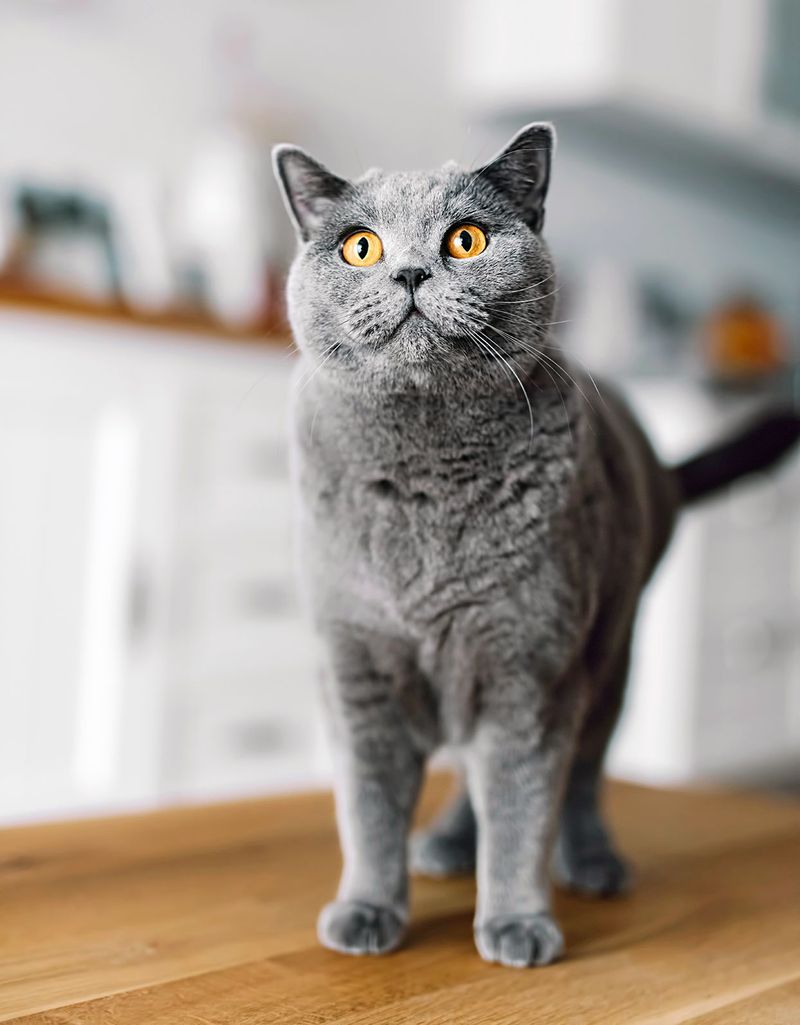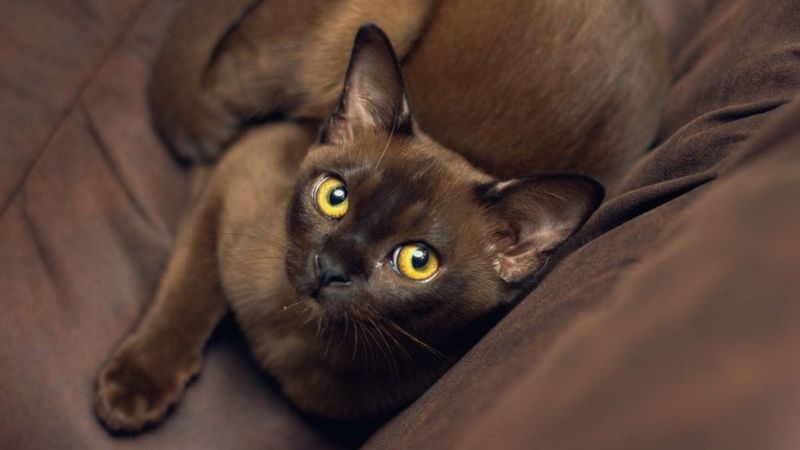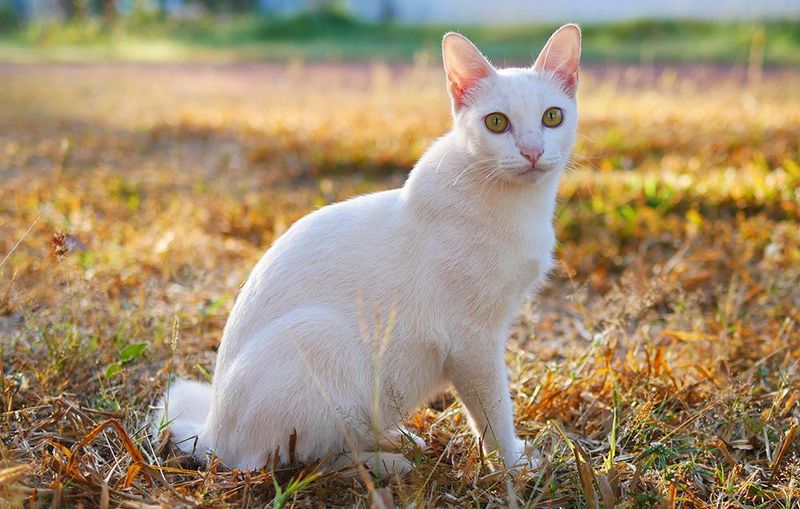📖 Table of Content:
Some cats are naturally independent and don’t seek constant attention. They’re comfortable spending time alone and often entertain themselves without fuss. This makes them well-suited for people with demanding schedules or quieter lifestyles.
These breeds still enjoy affection but on their own terms. They may curl up beside someone without insisting on being the center of attention. Their calm, low-key nature can be a refreshing contrast to more demanding pets.
For those who value companionship without constant interaction, certain cat breeds strike the right balance. They provide a quiet presence rather than clingy behavior. Choosing the right breed can make coexisting with a cat feel effortless and peaceful.
1. Russian Blue
Russian Blues are masters of self-entertainment. These elegant silver-blue cats appreciate affection on their terms but never demand it constantly. They’re known for their intelligence and ability to adapt to your schedule.
When you’re busy, they’ll find a sunny spot to nap or a toy to bat around. When you’re available, they’ll gladly accept pets and playtime. Russian Blues form strong bonds with their humans but respect boundaries. They typically follow a predictable routine and cause minimal household disruption, making them excellent companions for people who work long hours.
2. British Shorthair
Calm and composed, British Shorthairs bring a relaxed energy to any home. Their dense fur and round faces match their mellow personalities, often content to watch from afar. They’re not prone to jumping on furniture and don’t insist on constant attention.
Their moderate energy levels mean they’re content with short play sessions followed by long naps. British Shorthairs maintain their independent nature throughout their lives, making them ideal for people who appreciate a low-key companion.
3. American Shorthair
Friendly yet self-sufficient, American Shorthairs are ideal for households that appreciate a balanced pet. Their ancestry as hardworking mousers contributes to their confident and independent temperament. Whether it’s playtime or quiet observation, they’re comfortable in either role.
Their adaptable personality means they can adjust to various household routines without stress. American Shorthairs typically form bonds with all family members rather than becoming overly attached to one person. Their medium energy level and easygoing temperament make them excellent choices for first-time cat owners looking for companionship without clinginess.
4. Norwegian Forest Cat
With their luxurious coats and strong presence, Norwegian Forest Cats are both elegant and self-reliant. Bred to thrive in harsh Scandinavian climates, they’re natural explorers with a fondness for high places. Affectionate but not clingy, they enjoy companionship on their own terms.
Norwegian Forest Cats typically show affection through proximity rather than demanding cuddles. They might sit near you rather than on you – a perfect arrangement for those who appreciate companionship without the clinginess. Their thick coats require regular brushing, but they handle most grooming independently.
5. Siberian
Siberians balance affection with admirable independence. These sturdy cats from Russia have evolved to be self-sufficient while maintaining a friendly disposition toward their human families. They’re playful and intelligent, often solving problems and finding entertainment without human assistance. Unlike needier breeds, Siberians won’t pester you for attention when you’re busy but will happily engage when you initiate interaction.
Their moderate vocalization means they communicate needs without excessive meowing. Siberians are also excellent hunters who enjoy interactive toys that satisfy their natural instincts. Despite their thick coats, they’re surprisingly low-maintenance in temperament.
6. Maine Coon
America’s native Maine Coons combine devoted friendship with a laid-back attitude. These gentle giants follow their own pace—attentive but never intrusive. Their affection often comes through presence alone, preferring companionship without clinginess.
Their playful nature continues well into adulthood, but they’re equally content watching birds through windows or playing with toys independently. Maine Coons adapt well to various household routines and rarely show anxiety when left alone for reasonable periods.
7. Scottish Fold
Known for their adorable folded ears, Scottish Folds bring calm and charm to any household. Their moderate activity level means they join in when they want but don’t demand constant interaction. These cats often settle into quiet routines, observing the world from favorite comfortable perches.
Their quiet, soft voices match their gentle personalities. While they form strong bonds with their families, they maintain their independent streak and won’t follow you constantly seeking interaction. Scottish Folds generally get along well with other pets and children without becoming stressed or territorial.
8. Abyssinian
With a curious and energetic personality, Abyssinians showcase true feline independence. Their athletic builds and ticked fur make them natural explorers who thrive on discovering new nooks. Affection comes in playful moments instead of demanding to be held.
Their intelligence means they quickly learn household routines and adapt accordingly. Abyssinians appreciate interactive play sessions but are equally content amusing themselves when you’re busy. They typically maintain this independent, active personality throughout their lives.
9. Turkish Angora
Elegant and confident, Turkish Angoras are known for their striking beauty and sharp intellect. Cherished for centuries, these cats adapt well to many lifestyles. They form meaningful bonds but maintain a respectful distance when needed.
Turkish Angoras are social without being needy, often content to be near you rather than constantly in your lap. Their playful spirit and problem-solving abilities keep them entertained without human intervention. Turkish Angoras typically establish their own comfortable routines within your household. They’re excellent at communicating their needs clearly without excessive vocalization or demanding behavior.
10. Chartreux
Chartreux cats offer quiet companionship without neediness. These blue-gray French felines are famous for their silent ways and self-contained personalities. They’re affectionate but never demanding, preferring to express their love through proximity rather than persistent meowing or pawing. Chartreux cats are skilled at entertaining themselves, often finding toys or sunny spots for napping when their humans are busy.
Their intelligence and adaptability make them excellent at adjusting to various household routines. Chartreux typically form strong bonds with their families but maintain their independent spirit throughout their lives. Their moderate energy levels mean they don’t require constant play sessions.
11. Burmese
Sociable yet self-reliant, Burmese cats fit seamlessly into busy households. Muscular and glossy-coated, they appreciate time with their humans but respect boundaries. Their clever nature means they often create their own fun when alone.
Their moderate vocalization means they communicate needs without excessive meowing. Burmese cats form strong bonds with all family members rather than becoming overly attached to one person. Their confident nature helps them adjust easily to new situations without anxiety.
12. Japanese Bobtail
Japanese Bobtails bring centuries of independent spirit to modern homes. These distinctive cats with bobbed tails have been celebrated in Japanese art and culture for their balanced personalities. They’re active and playful but perfectly capable of entertaining themselves. Japanese Bobtails typically establish their own comfortable routines within your household, respecting your space while maintaining their dignity.
Their moderate energy levels mean they enjoy interactive play without demanding constant attention. Japanese Bobtails are known for their intelligence and problem-solving abilities, often figuring out puzzles or creating their own games. They form strong bonds with their families but maintain healthy boundaries.
